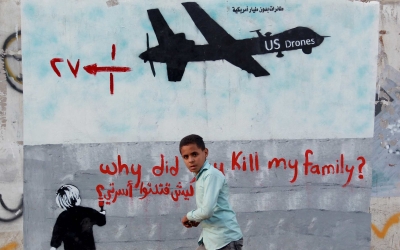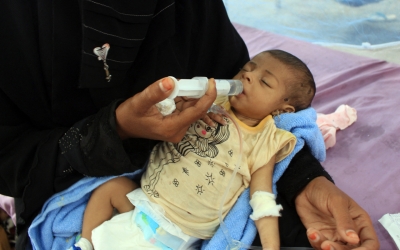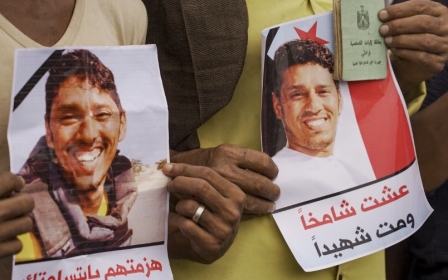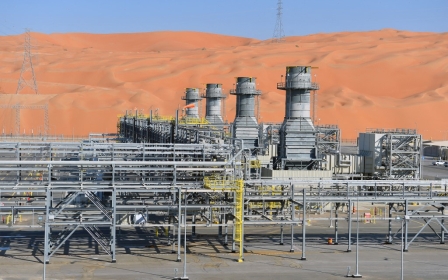Houthi 'terror' listing will have no effect on ending Yemen war, says ex-foreign minister
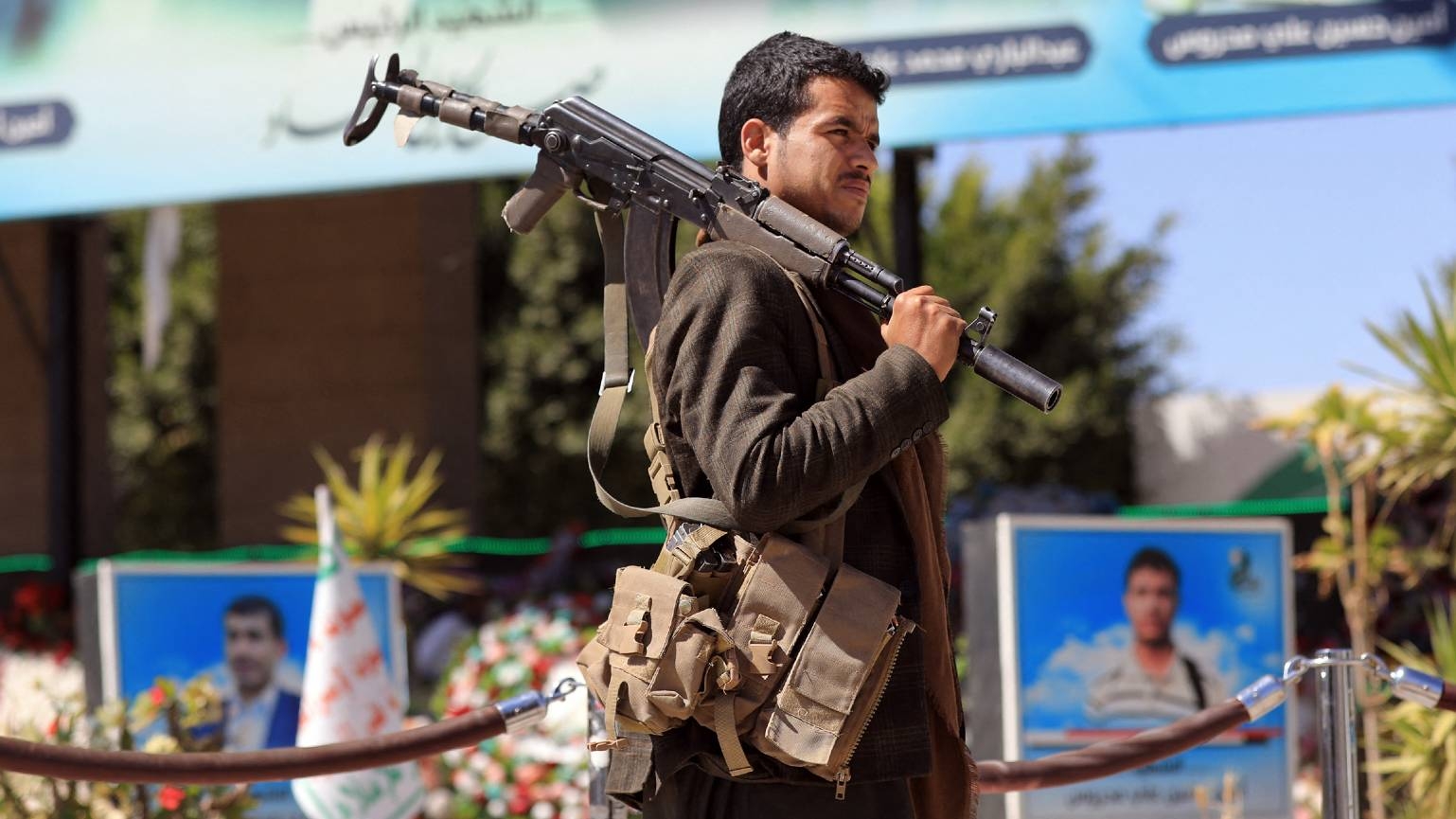
Yemen's former foreign minister has said any re-designation by the United States of the Houthi movement as a foreign terrorist organisation (FTO) would not have an impact on ending the protracted conflict.
Speaking in Washington on Thursday ahead of the seventh anniversary of the war in Yemen, Khalid al-Yamani said the Houthis were well-supplied and could easily maintain military operations while facing wide-ranging sanctions.
"The Houthis, even if we enlist them [as an FTO], so what? How can that impact their daily life? They have their closed economy. They have their own leverage inside the country," he said at an event hosted by the Middle East Institute.
In the waning days of the Trump administration, Yemen's Houthi rebels were put on Washington's FTO list, an action that carries sweeping sanctions and financial restrictions.
Soon after entering office, Biden removed the designation. But following a string of attacks on oil facilities in Abu Dhabi, the United Arab Emirates has been pushing Washington to reverse course.
Aid groups, however, warn that such a move would have disastrous consequences for the delivery of humanitarian assistance to civilians in Houthi-controlled areas. Yemen is already the world's worst humanitarian crisis, according to the United Nations, with the death toll estimated to have reached 377,000 people killed as a result of the war by the end of last year.
So far, the US administration has moved to sanction individual Houthi leaders, but stopped short of designating the group as a whole.
The war began when the Houthis seized the capital, Sanaa, in late 2014, forcing the internationally recognised government to flee. A coalition led by Saudi Arabia launched a military campaign to restore the government in March 2015, imposing an air and sea blockade on Houthi-held areas.
Biden's 'accumulation of mistakes'
The Biden administration's moves on Yemen have been driven by progressive members of Congress who have grown increasingly frustrated over the Saudi-led coalition's war effort.
The White House announced an end to support for offensive operations for the Saudi-led coalition, but maintained it would continue to support and defend the kingdom's territorial sovereignty.
'Yemenis, they cannot wait for the international community to feed them on a daily basis'
- Khalid al-Yamani, former Yemen ambassador and foreign minister
The decision was met with a mixed response from lawmakers, and many have called on Biden to clarify what such support entails. Meanwhile, the administration has put forward a number of arms sales to Riyadh that senators and members of Congress have slammed.
Yamani, who has also formerly served as Yemen's ambassador to the UN, said the White House's approach to Yemen has consisted of a series of mistakes, and the country is nowhere closer to ending the conflict than a year ago.
"What the administration is doing is an accumulation of mistakes," Yamani said.
Pointing particularly to the issue of the Houthi designation, the former diplomat said Biden could have at least leveraged lifting the designation for concessions in peace negotiations.
"They could have used that system - because they were not responsible for it - used it as leverage in their talks with the Houthis," he said.
"No, they decided they would just remove the listing without even using that listing."
Separate central banks 'making life miserable'
Years of UN-sponsored negotiations between the Houthis and the Yemeni government have failed to bring forth a peaceful resolution to the conflict.
"After eight years, we're still trying to sit together around the table and try to think of the future of governing Yemen together, living in Yemen together," Yamani said.
The new UN special envoy for Yemen, Hans Grundberg, has begun taking steps to mediate, and earlier this month began hosting talks in Amman that included 100 Yemenis from different political parties and groups.
However, Yamani said if the UN wanted to achieve peace in Yemen, it must first negotiate between the Houthis and the internationally recognised government:
"I think Grundberg is doing good by consulting, but he's not doing good in approaching the crisis. Because the crisis is between the Houthis and the government. These two parties need to stop the war and then the rest can come later."
Yamani added that, while the political and security negotiations seem to be going nowhere while the war rages, the Houthis and the Saudi-backed government could at least come to the table and agree an economic plan and "talk practical steps" aimed at bringing together the separate banking systems.
He said such a step could help alleviate the financial situation for both parties, and help improve the lives of ordinary Yemenis.
Currently, there are two central banks in Yemen, one controlled by the Houthis and the other controlled by the government. The two banks each have their own currency, making life extremely complicated for Yemenis on both sides of the conflict.
"We cannot accept that there are two central banks because this is really making the lives of families miserable. And you see the value of things, the prices, everything is changed, and the currency is different from Sanaa to Aden," Yamani said.
"We need to make it work. Yemenis, they cannot wait for the international community to feed them on a daily basis. It's impossible for the international community."
Middle East Eye propose une couverture et une analyse indépendantes et incomparables du Moyen-Orient, de l’Afrique du Nord et d’autres régions du monde. Pour en savoir plus sur la reprise de ce contenu et les frais qui s’appliquent, veuillez remplir ce formulaire [en anglais]. Pour en savoir plus sur MEE, cliquez ici [en anglais].


